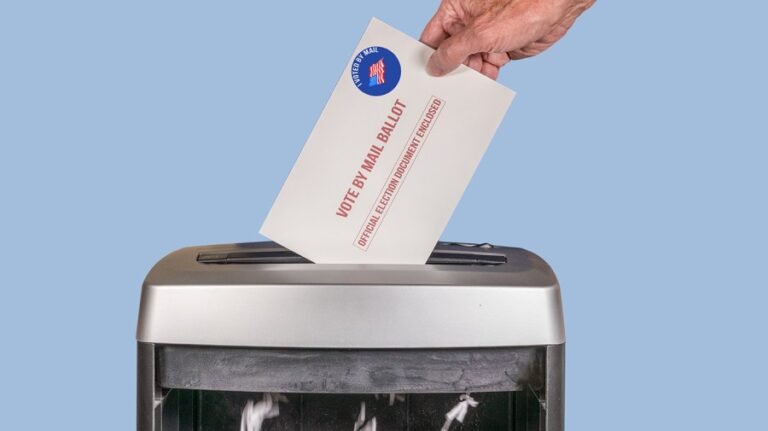
President Trump has turned his office into a giant ATM, providing him and his family with billions of dollars. Now The New York Times reports he “is demanding” taxpayers pay him about $230 million to settle his claims that the Justice Department improperly investigated him.
Forbes Magazine reports that Trump’s immediate family “is now worth an estimated $10 billion, having nearly doubled its net worth since last year’s election. Trump’s own fortune jumped $3 billion in one year,” an astounding 70 percent gain.
It’s obvious that this enormous financial windfall would not have come to Trump and his family if he were not president. Before his first term, he declared business bankruptcies six times when he couldn’t make payments on $3.4 billion of debt. That is hardly the mark of a successful tycoon.
Now that Trump is the most powerful person in the world — able to reward people he likes and weaponize government to punish those he opposes — his supporters and those seeking favors are rushing to invest in his businesses and donate to his pet projects. That includes the building of a $300 million ballroom at the White House.
Trump first demanded about $230 million in payments from the Justice Department — to be paid for by U.S. taxpayers — during the Biden administration. Trump absurdly claimed he deserved the huge payment because his rights were violated by the Justice Department on two occasions. The first was when the department investigated Trump’s 2016 presidential campaign’s possible ties to a Russian effort to interfere with the election to help him win the presidency. The second came when the FBI carried out a court-approved search of Trump’s Mar-a-Lago estate in Florida in 2022 and found many boxes of classified documents he had refused to return to the National Archives after his first presidential term ended.
There is no evidence the Justice Department or FBI did anything improper in either instance. Their job is to investigate possible crimes. Trump was criminally charged in the classified documents case, but the charges were dropped because he was elected president for a second time — not because the case against him was weak. It was actually a strong case.
The Biden administration did not act on the Trump claims seeking $230 million, which were filed using the government’s Standard Form 95. The form says it is used to seek compensation for “property damage, personal injury, or death allegedly caused by a federal employee’s negligence or wrongful act or omission occurring within the scope of the employee’s federal employment.”
Trump has not pursued the claims since returning to the White House, but he could at any time. If he does, Deputy Attorney General Todd Blanche, who is Trump’s former criminal defense attorney and a Trump loyalist, would have the power to grant Trump’s request for $230 million.
I believe Blanche would do whatever Trump asked of him. But that would be a blatant and unethical conflict of interest. Blanche should have to recuse himself from dealing with Trump’s claims. I would be shocked to see Blanche do that.
Asked about his attempt to get taxpayers to pay him $230 million, Trump said: “I was damaged very greatly and any money I would get, I would give to charity.”
But Trump has made false claims about his charitable giving in the past. This makes me skeptical that he would donate any funds he may receive from the Justice Department to charity.
In 2016, The Washington Post reported that Trump took credit for charitable contributions he didn’t make and claimed to make contributions he couldn’t verify. The Post said a foundation Trump created in his name used money to benefit Trump, including to settle legal disputes.
In 2019, a court ordered Trump to pay more than $2 million to eight charities for illegally misusing Trump Foundation funds for political purposes and ordered him to shut down the foundation.
In 2020, The New York Times reported that Trump’s tax records showed much of the nearly $120 million in tax deductions he claimed for charitable contributions involved agreements not to develop land he owned, rather than money he gave charities.
Many federal employees are going without paychecks due to the government shutdown. As long as they are struggling financially, Trump may not immediately press his claim for $230 million. It would look very greedy. But nothing is stopping him from pursuing the financial payoff before he leaves office. I would be surprised if he didn’t.
Lawsuits challenging Trump’s money-grab if he takes the $230 million are inevitable. The challenges will have a strong chance of success, and I hope they prevail.
Sadly, Trump ignores the long tradition of elected officials prioritizing serving the public, rather than enriching themselves. I wish he would instead heed the stirring call to patriotism in President John F. Kennedy’s 1961 Inaugural Address: “Ask not what your country can do for you — ask what you can do for your country.”
A. Scott Bolden is an attorney, NewsNation contributor, former chair of the Washington, D.C. Democratic Party and a former New York state prosecutor.

